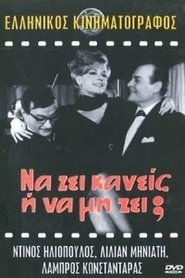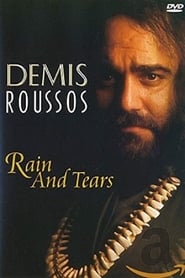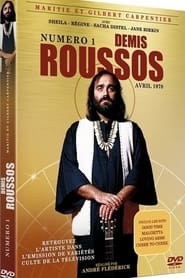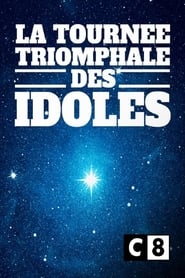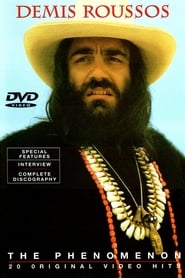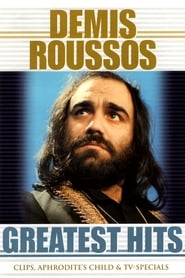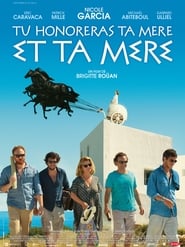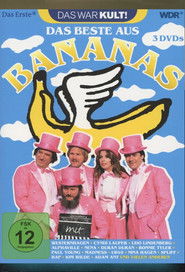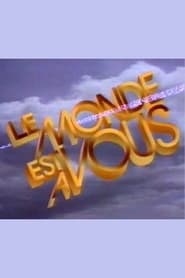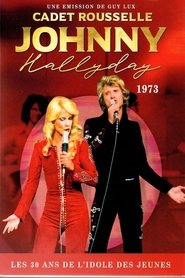Artemios "Demis" Ventouris-Roussos (15 June 1946 – 25 January 2015) was a Greek singer, songwriter and musician. As a band member he is best remembered for his work in the progressive rock music act Aphrodite's Child, but as a vocal soloist, his repertoire included hit songs like "Goodbye, My Love, Goodbye", "From Souvenirs to Souvenirs" and "Forever and Ever".
Roussos sold over 60 million albums worldwide and became "an unlikely kaftan-wearing sex symbol".
Roussos was born and raised in Alexandria, Egypt, in a Greek family. His father George (Yorgos) Roussos was a classical guitarist and an engineer and his mother Olga participated with her husband in an amateur theatrical Greek group in Alexandria (there were three such groups in the Greek community); her family originally came from Greece. As a child, he studied music and joined the Greek Church Byzantine choir in Alexandria. His formative years in the ancient port city's cosmopolitan atmosphere were influenced by jazz, but also traditional Arab and Greek Orthodox music. His parents lost their possessions during the Suez Crisis and consequently decided to move to Greece.
After settling in Greece, Roussos participated in a series of musical groups beginning with the Idols when he was 17, where he met Evángelos Papathanassíou (later known as Vangelis) and Loukas Sideras, his future bandmates in Aphrodite's Child. After this, he joined the Athens-based band We Five, another cover band which had limited success in Greece.
Roussos came to a wider audience in 1967 when he joined progressive rock band Aphrodite's Child, with Vangelis and Sideras, initially as a singer but later also playing bass guitar, achieving commercial success in France and other parts of Europe from 1968 to 1972. They set off for London to break into the international music scene but were turned back at Dover due to visa problems. They retreated to Paris where they decided to stay, signing a record deal there with Philips Records. Their first recording sessions were delayed by the general strike of May 1968 but later the same year the song "Rain and Tears" was issued across Europe. The song appeared on the album End of the World in October. Composed by Vangelis and the French lyricist Boris Bergman, the song featured Roussos's unusual high tenor. The song was only a minor hit in Britain but was successful in many other countries. Roussos's operatic vocal style helped propel the band to international success, notably on their final album 666, based on passages from the Book of Revelation, which became a progressive rock cult classic. ...
Source: Article "Demis Roussos" from Wikipedia in English, licensed under CC-BY-SA 3.0.
Roussos sold over 60 million albums worldwide and became "an unlikely kaftan-wearing sex symbol".
Roussos was born and raised in Alexandria, Egypt, in a Greek family. His father George (Yorgos) Roussos was a classical guitarist and an engineer and his mother Olga participated with her husband in an amateur theatrical Greek group in Alexandria (there were three such groups in the Greek community); her family originally came from Greece. As a child, he studied music and joined the Greek Church Byzantine choir in Alexandria. His formative years in the ancient port city's cosmopolitan atmosphere were influenced by jazz, but also traditional Arab and Greek Orthodox music. His parents lost their possessions during the Suez Crisis and consequently decided to move to Greece.
After settling in Greece, Roussos participated in a series of musical groups beginning with the Idols when he was 17, where he met Evángelos Papathanassíou (later known as Vangelis) and Loukas Sideras, his future bandmates in Aphrodite's Child. After this, he joined the Athens-based band We Five, another cover band which had limited success in Greece.
Roussos came to a wider audience in 1967 when he joined progressive rock band Aphrodite's Child, with Vangelis and Sideras, initially as a singer but later also playing bass guitar, achieving commercial success in France and other parts of Europe from 1968 to 1972. They set off for London to break into the international music scene but were turned back at Dover due to visa problems. They retreated to Paris where they decided to stay, signing a record deal there with Philips Records. Their first recording sessions were delayed by the general strike of May 1968 but later the same year the song "Rain and Tears" was issued across Europe. The song appeared on the album End of the World in October. Composed by Vangelis and the French lyricist Boris Bergman, the song featured Roussos's unusual high tenor. The song was only a minor hit in Britain but was successful in many other countries. Roussos's operatic vocal style helped propel the band to international success, notably on their final album 666, based on passages from the Book of Revelation, which became a progressive rock cult classic. ...
Source: Article "Demis Roussos" from Wikipedia in English, licensed under CC-BY-SA 3.0.
Show more expand_more
keyboard_double_arrow_down

